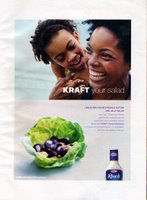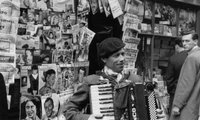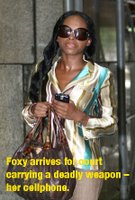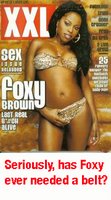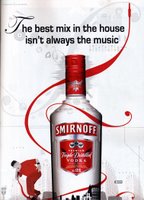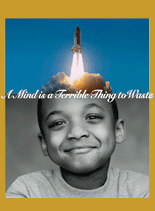
From The Chicago Sun-Times...
--------------------------------------
Tough job awaits new Urban League chief
BY LAURA WASHINGTON
If there is a civil rights group as moribund as the Chicago Urban League, I haven’t seen it. Serendipitously, there will soon be a fresh breeze blowing through the league’s headquarters at 45th Street and Michigan Avenue.
On Oct. 1, Cheryle Jackson will take charge as the president and CEO. When I heard the 45-member Urban League board had chosen Jackson, I was more than pleasantly surprised. I was stunned -- that a board that has presided over this fading institution mustered the chutzpa to make such a nontraditional choice.
Jackson, 41, is the first black woman to head the league. The Chicago native comes from a three-year stint as deputy chief of staff and communications director for Gov. Blagojevich. Her portfolio also includes tours as a public relations executive for National Public Radio and top jobs in government and public affairs at Amtrak.
She also brings precious few, if any ties to the stodgy, risk-averse boardroom jockeys who have dominated the organization for decades.
At 90, the Chicago Urban League has betrayed its storied history. The agency has grown passive and lethargic. Many observers have predicted Jackson will bring a new approach to civil rights activism. I would settle for some leadership. The problem is not so much that the agency is out-of-date, it’s out of steam.
Jackson will replace James Compton, who ran the agency for 34 years. When Compton took over, Mayor Richard J. Daley was still in his reign and the Sears Tower was under construction. Compton can claim many accomplishments: He has built an institution with a $6 million-plus budget. Its focus on job enhancement, education and research has drawn generous support from the Chicago establishment.
Yet I say it’s nearly dead -- why? The list is long, but here’s one number to ponder: 500. That’s how many paying members the league claims, in a city with more than a million black residents. The league has a profile bordering on invisibility (Ralph Ellison could relate). Whenever there is a crisis or controversy in the black community, the league's voice has been muted at best. Black Chicago, in fact, black America, is awash in a boatload of problems. We don’t need any of the league’s repetitive studies to tell us what they are, and have been for decades: racism, single-woman-headed households, no jobs, too many black men in jail.
Jackson praises the league’s legacy and pledges to “build on the successes of Jim Compton.” Yet she acknowledges the challenges. While not ready to lay out her full agenda, she did share a few budding ideas. Noting that the Urban League has historically focused on job training and placement for the inner-city jobless, she is looking to focus on economic development and job creation. “We train people for jobs, but where are the jobs? How do you attract commerce?”
Jackson mentioned the “exciting” cultural and economic resurrection of neighborhoods like Bronzeville, then recalls a recent drive through Englewood, where she saw “a deep and abiding lack of economic infrastructure” and “blighted corner after blighted corner after blighted corner.”
So what’s next? She is looking at ways to attract commerce, real estate and business development, and capital investment. Her keywords: re-invention and innovation.
So what should a civil rights organization look like today? “Maybe it should look like a venture capital fund,” Jackson ponders. “Maybe it should look like Wall Street.”
Education and advocacy are also priorities, she says, along with building membership. Jackson says she’ll deploy her communications savvy to raise the league’s profile and “engage” its constituents. “We’re going to be out there on the streets,” she assures.
That’s a tough one. The marching days for civil rights organizations are misty memories. Much of the league’s budget comes from the largess of corporate and government sources. Business and government honchos, however, aren’t keen on controversy and critiques, especially when they’re paying the bills. Jackson will have to ramp up the membership to give her backup when it’s time to take on a hot topic or sacred cow.
Black folks can’t afford to work in a vacuum. The league must devise programming that builds alliances with other urban constituencies like Latinos, gays and lesbians and women to tackle complex concerns like immigration, gay marriage, AIDS and the repugnant exploitation of women that’s so popular with the hip-hop crowd.
Watch out. There’s a new Jackson on the scene.






